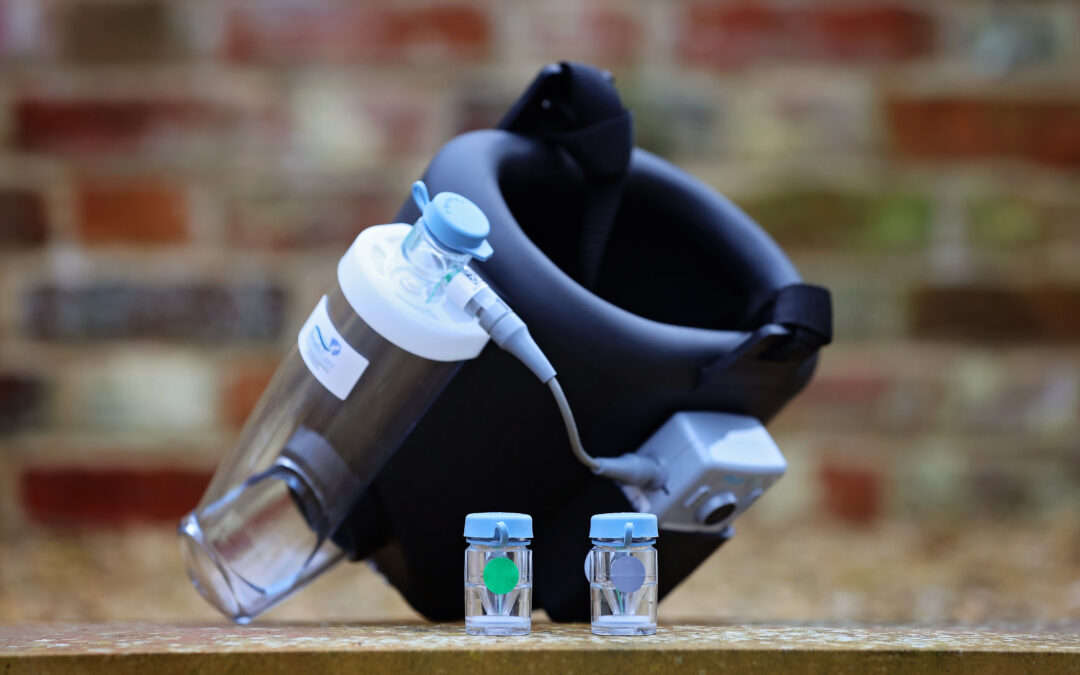Maintaining optimal respiratory health is critical to a horse’s overall wellbeing. Horses, unlike humans, are obligate nasal breathers and do not possess the ability to breathe through their mouth, meaning they rely exclusively on their nasal passages and airways being healthy and clear to breathe effectively.
Why wait until breathing becomes challenging to step in? Nebulisers aren’t just for horses with difficulties. Whether they’re travelling in dusty horseboxes, competing outdoors or simply exposed to environmental triggers like dust and pollen, your horse’s airways can come under stress.
Nebulising saline is a simple and effective way to support their respiratory system on a day-to-day basis. Read on to find out more about how saline nebulisation for horses can support their respiratory system.
What is saline and how does it work?
Saline is comprised of salt and water – typically 0.9% sodium chloride. For nebulisation, a medical saline solution is used. When inhaled, saline helps to break down mucus, making it easier for the horse to clear its airways.
How can saline nebulisation for horses help?
Excess mucus can build up very similarly to how it does in humans when we have colds. This can inhibit the horse’s ability to breathe freely, as well as trapping irritants and bacteria, increasing the likelihood of infections. Nebulising saline regularly can reduce the buildup of mucus and help to clear the airways. Emerging research also suggests that saline may help to regulate inflammatory cytokines, helping to reduce airway inflammation in a safe, natural and drug-free way.
When might saline nebulisation be beneficial?
Saline can be used in several different situations, such as
- During travel
Transporting horses in their boxes could expose them to dust, pollutants and changes in air quality that could lead to increased mucus production.
- Attending shows or events
Exposure to unfamiliar environments or triggers such as stress and confined spaces can have a negative impact on respiratory health.
- High pollen count
Horses can suffer with seasonal allergies too. Mucus production and airway irritation can peak during summer months when the pollen count is high.
- Dusty stables
Horses that are kept in stables or other environments that are high in dust may benefit from saline nebulisation.
- Underlying respiratory conditions
Horse with respiratory conditions, such as equine asthma, may not require prescribed medication all year round. However, keeping their airways clear with saline can help to keep them comfortable all year round.
Selecting a nebuliser for your horse
For maximum benefit from nebulised saline, it is important to choose a high quality nebuliser. An equine specific nebuliser – such as the Flexineb E3 – results in effective delivery of saline deep into the lower airways for optimum effectiveness. Some horses may benefit from routine nebulisation as part of their daily care, while others may require it only during times of increased respiratory stress, such as during travel, exposure to dust, or high pollen seasons.
Get in touch with our team to find out more about selecting the right nebuliser for your horse. Alternatively, read more about how you can keep your horse’s breathing at its best here.

